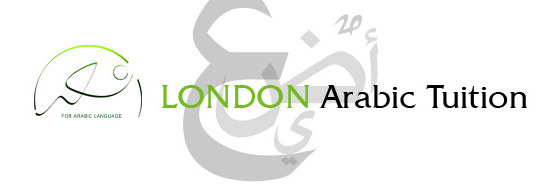Arabic is one of the most widely spoken languages in the world and has a history that dates back to the eighth century B.C. Over the centuries, it has evolved into its present form, which is spoken in some fashion by over 200 million people in 28 countries around the world. If your future plans include working, studying or traveling to this part of the world, it’s a very prudent idea to have at least a basic knowledge of Arabic before you leave.
It is the main language of Africa and the Middle East. This would explain why there is such a diverse set of dialects. The five major Arabic dialect groups are:
- Egyptian
- Gulf
- Iraqi
- Levantine
- North African
Learning Arabic is not like learning a traditional language, and many students in the UK are unaware of its diversity before they start their studies. Like Spanish and French, there is a difference between the way the language is written versus its spoken form.
Written versus Spoken Arabic
When Arabic is written, it is most always recorded in “Modern Standard Arabic” (MSA). This is the classic form of the language that is taught in schools and used in formal communications.
Arabic dialects can be distinguished by the different regions where people live, and it is used for everyday communication. Colloquial Arabic is spoken at home and between friends in shops and cafes. It is also used when writing informal written communications, such as text messages, emails and personal letters.
Two Approaches to Learning Arabic
When you decide to learn Arabic, there are two common approaches to tackling the language. The first one is to learn MSA first, which would give you mastery over the language’s alphabet and grammar, and then learn one of its dialects. This is the approach used by most universities in the United Kingdom, and the advantage of using this method is that it gives students a good understanding of Arabic grammar and a wide working vocabulary.
The second method is to learn a dialect first and then move to MSA. We prefer to use this approach with our students for a number of reasons:
More Natural way of Learning
Arabic children learn to speak the way their parents do – using their natural dialect – right from birth. Before they can talk, they hear the language used in any number of everyday situations. Once they start to attend school, they start to learn the formal rules of MSA through the medium of their regional dialect.
Focuses on Students’ Desire to Communicate
Most students who want to learn a new language are focused on verbal communication. They want to be able to be able to hold conversations as if they were in everyday situations. The positive aspect of this type of learning is that colloquial Arabic has a much simpler grammatical structure compared to MSA. Students can learn the language at a much faster rate and learn how to communicate with confidence.
Many students who start learning Arabic give up the process because they choose a course of study that focuses on learning MSA first. This is due to the lack of opportunities to speak and to practice conversation with the language.
photo credit: MYLAND | The Calligraphy Project via photopin (license)
Advantage of Choosing Private Arabic Tuition
When you decide to enrol in language courses at London Arabic Tuition, you can choose the method that best suits your needs and goals. If your main focus is to read Arabic literature and understand the media, then you should start with learning MSA.
On the other hand, if you are planning to travel to Arabic countries for work, study or on holiday, you would be far better off by starting to learn one of the Arabic dialects. Speaking MSA to a shopkeeper or a taxi driver will make you look stilted.
The person may understand your meaning, but will respond with colloquial expressions that you may find difficult to follow. You may even be greeted with laughter and ridicule, when what you want to do is to try to blend in to your new surroundings as a businessperson, student or visitor.
If you are able to converse in the local language, you will be met with a warm welcome. It will be much easier for you to connect with people, who will look upon with respect and friendship. Learning the language gives you the benefit of being able to understand the people and their culture in a way that doesn’t exist for those who stand outside of this particular circle. You get the benefit of being able to make a connection with people in a genuine and natural way.
Which Dialect Should you Choose?
If you are wondering whether there is one dialect that is better to learn or if you will be restricted if you learn one regional dialect over another, please put your mind at rest. The first one you choose is a starting point for you to appreciate the richness of the Arabic language. Once you put your listening skills to work and start to pick up on the language, you will be able to note the similarities and differences between different ways of speaking as they vary between dialects.
For our students who have specific plans for visiting, studying or working in a particular area of the world, we are happy to provide instruction in the dialect that reflects their destination. Our goal at London Arabic Tuition is to provide the best and most relevant instruction possible for our students.
Get Quality Language Education at London Arabic Tuition
You can’t possibly make a mistake when you choose a dialect, since once you are familiar with one you can start to learn another one. At London Arabic Tuition, we can tailor your courses and private lessons so that they meet your specific needs and learning style. Contact us today to find out more about how we can help you realize your dream of learning Arabic, whether you want to study MSA or dialects first!





Farmville farms even include free gift that is especially kddddeeeeacdceab
Having read this I believed it was really enlightening.
I appreciate you finding the time and effort to put this informative article together.
I once again find myself personally spending a lot of
time both reading and commenting. But so what, it was still worth it!
Hello Web Admin, I noticed that your On-Page SEO is is missing a few factors, for one you do not use all three H tags in your post, also I notice that you are not using bold or italics properly in your SEO optimization. On-Page SEO means more now than ever since the new Google update: Panda. No longer are backlinks and simply pinging or sending out a RSS feed the key to getting Google PageRank or Alexa Rankings, You now NEED On-Page SEO. So what is good On-Page SEO?First your keyword must appear in the title.Then it must appear in the URL.You have to optimize your keyword and make sure that it has a nice keyword density of 3-5% in your article with relevant LSI (Latent Semantic Indexing). Then you should spread all H1,H2,H3 tags in your article.Your Keyword should appear in your first paragraph and in the last sentence of the page. You should have relevant usage of Bold and italics of your keyword.There should be one internal link to a page on your blog and you should have one image with an alt tag that has your keyword….wait there’s even more Now what if i told you there was a simple WordPress plugin that does all the On-Page SEO, and automatically for you? That’s right AUTOMATICALLY, just watch this 4minute video for more information at. Seo Plugin